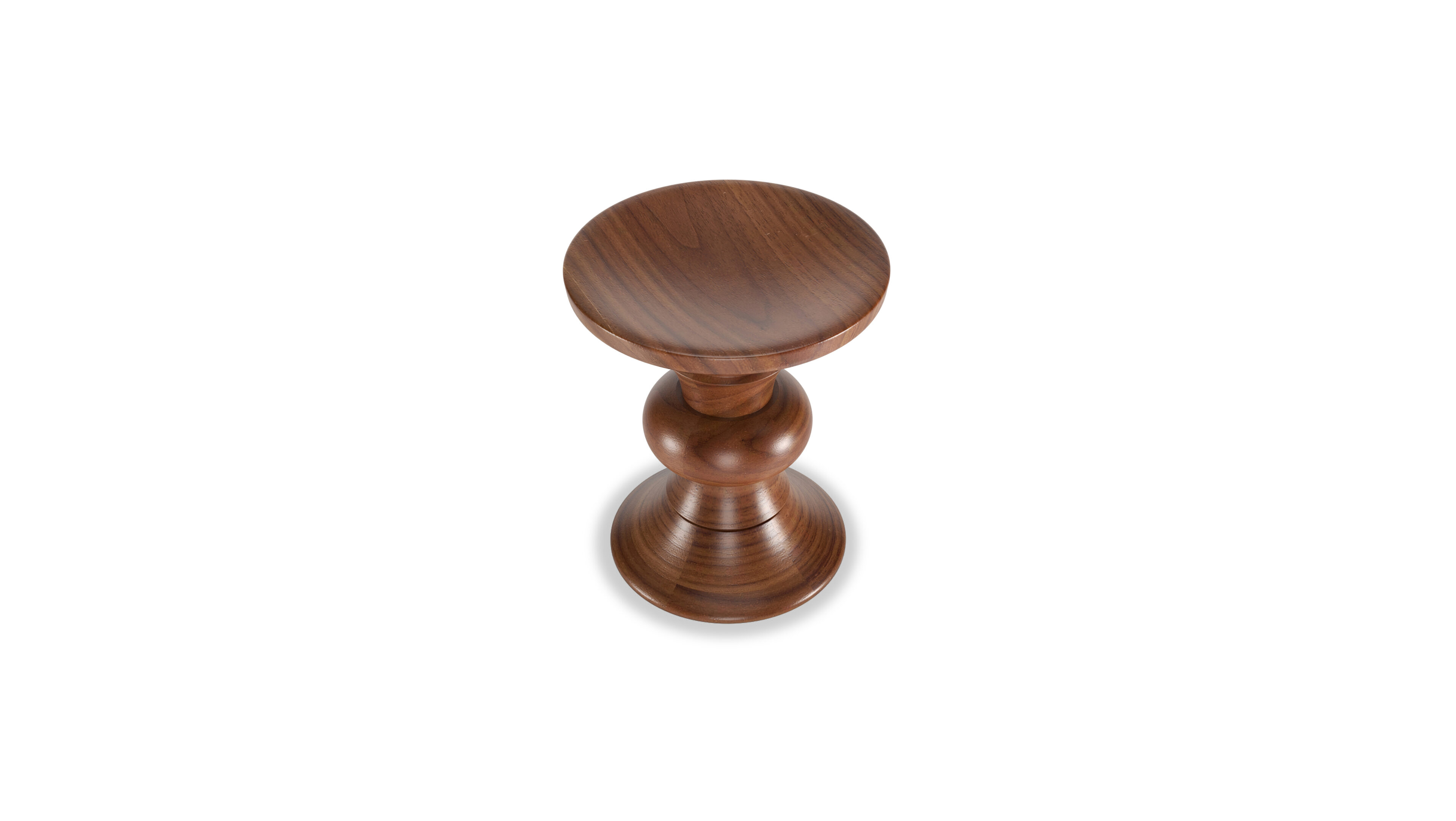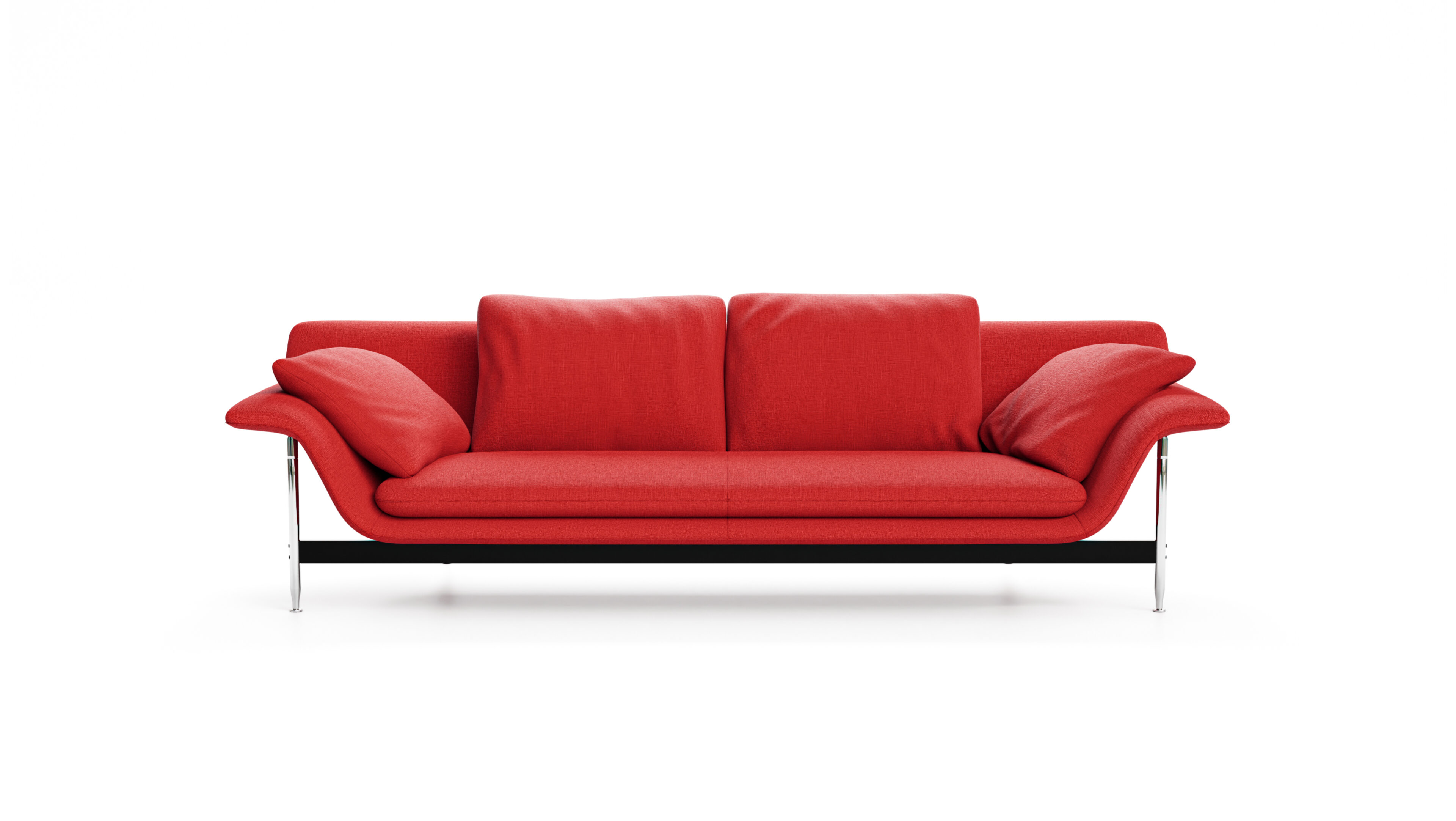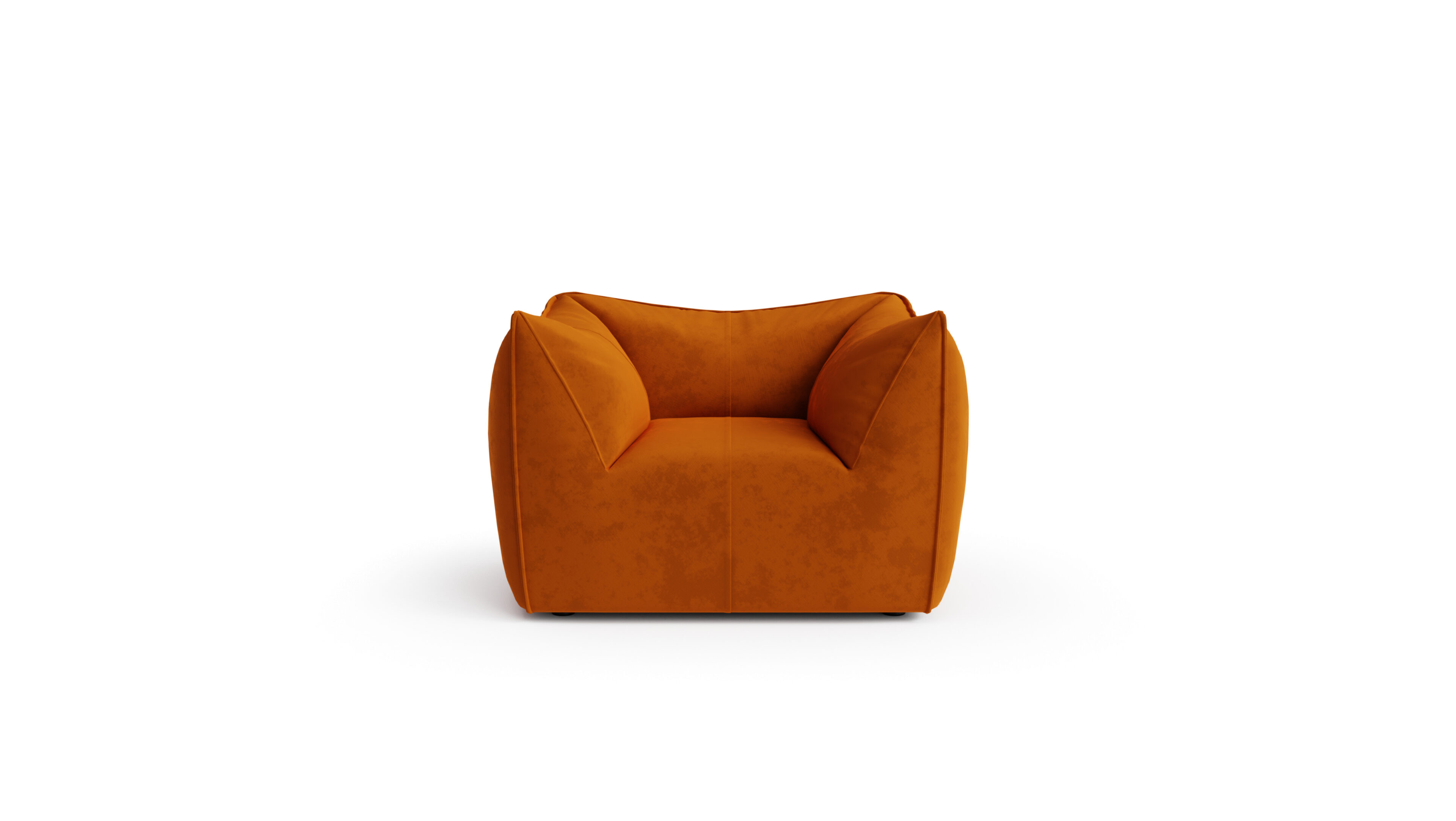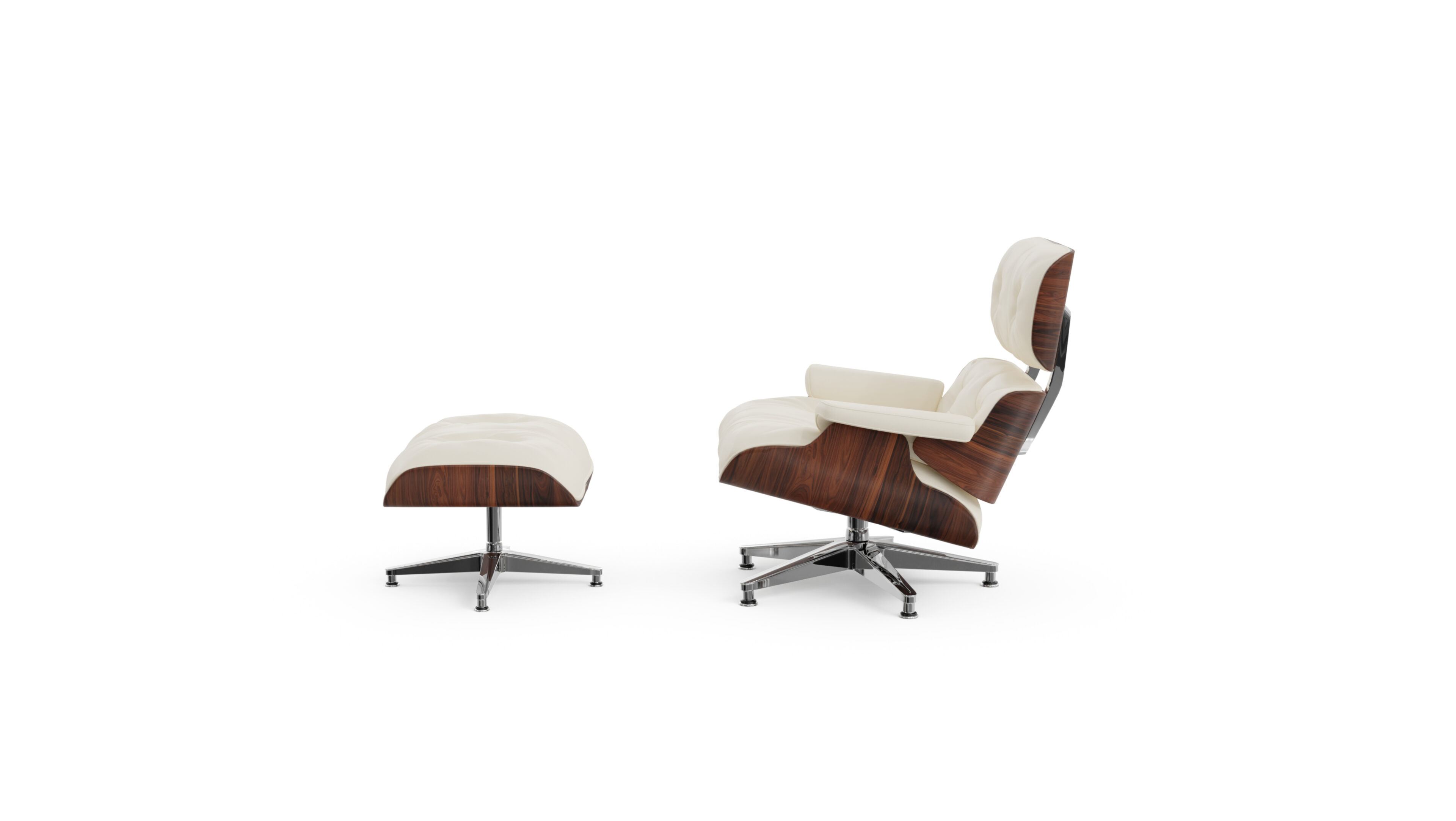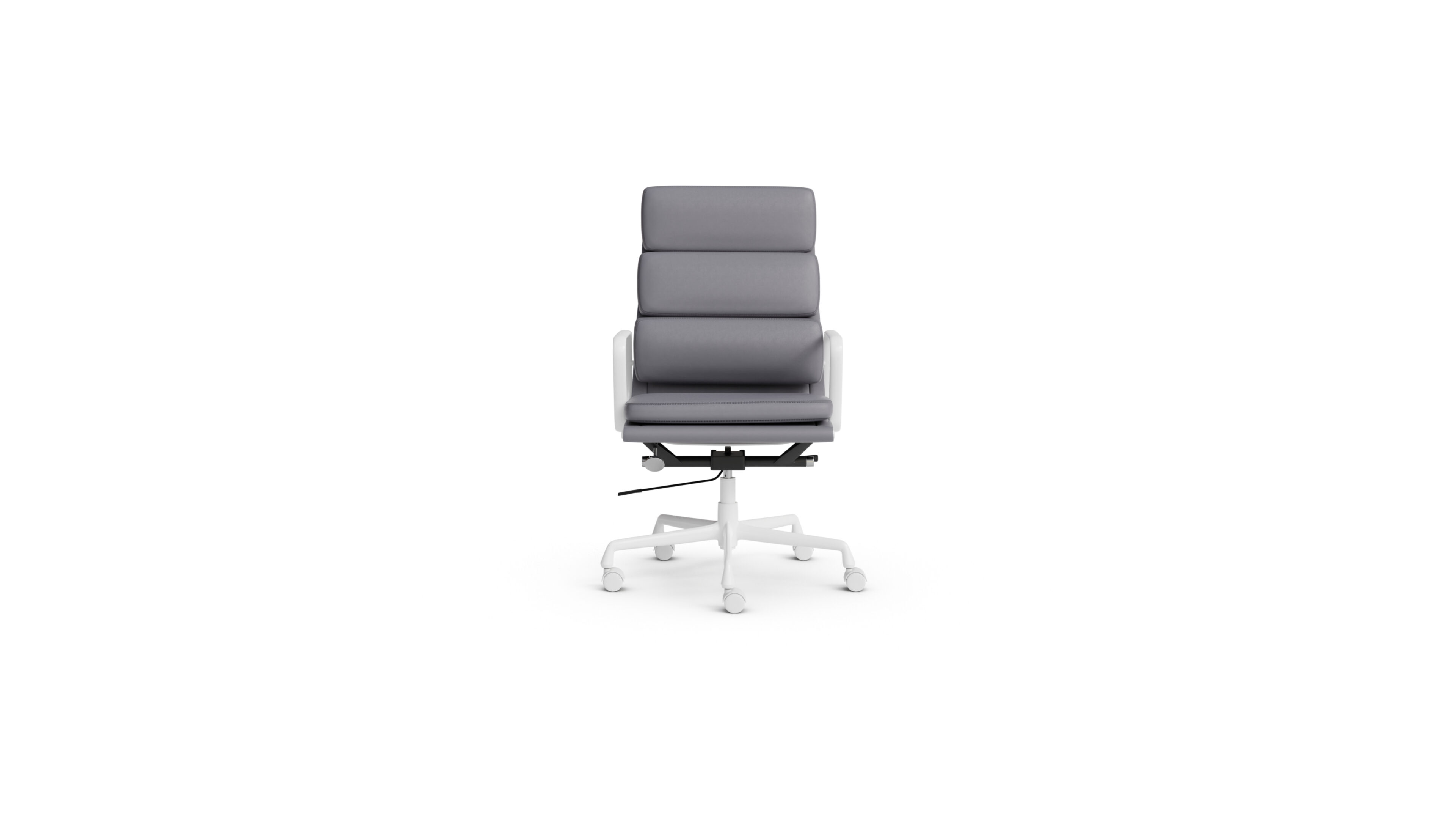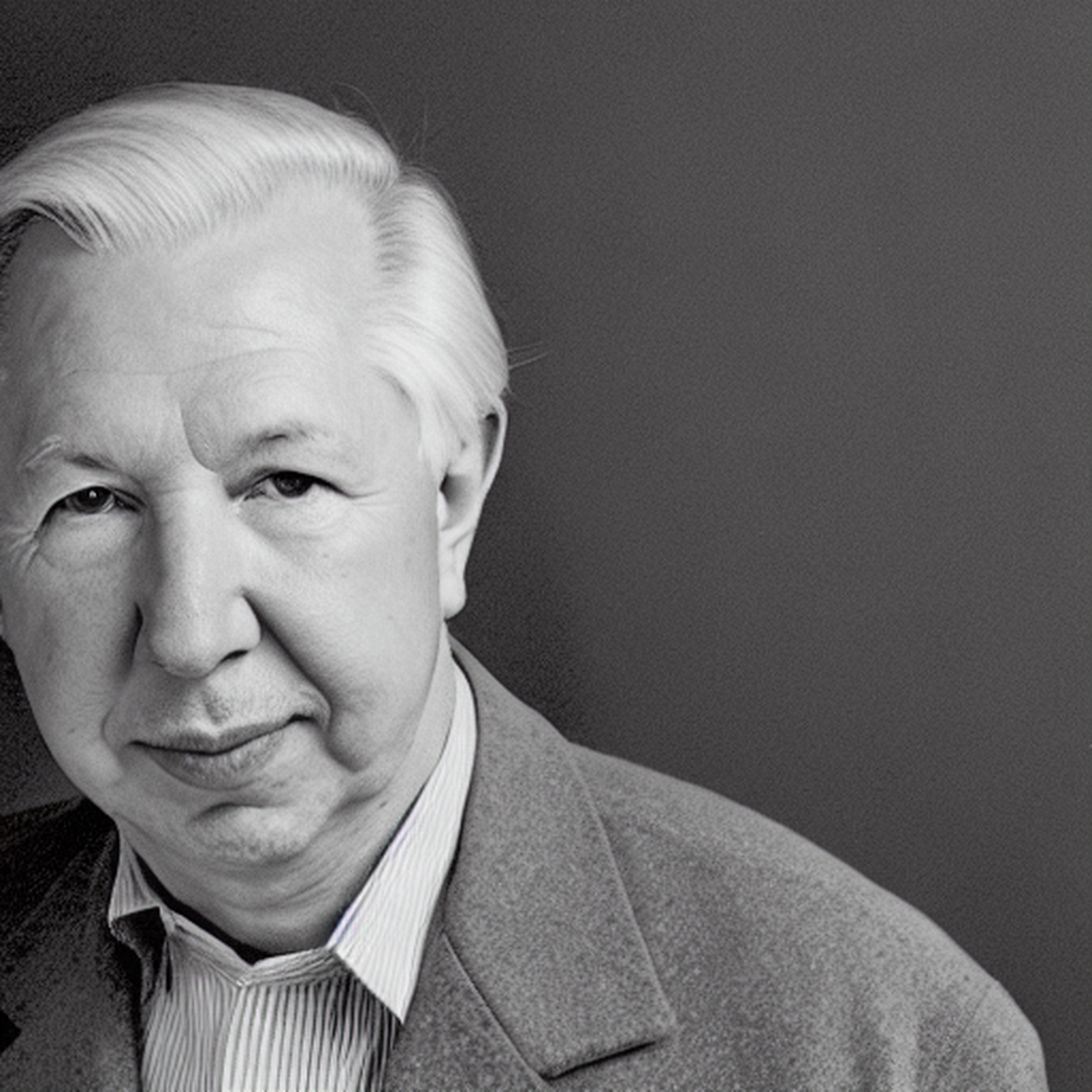Archetype Forms Walnut Stool Two Construction:
- Material: Lathe-turned solid walnut, ebony ash, oak, or other custom selection from Archetype Forms
- Finish: Clear lacquer or custom finish options from Archetype Forms
- Components: Crafted from three joined walnut segments
The Walnut Stool was originally designed in 1960 by Charles and Ray Eames, commissioned for the Time & Life Building at Rockefeller Center. It features a sculptural, lathe-turned profile with a concave top, tapered waist, and rounded base. The design reflects the Eameses’ philosophy of creating functional, minimalist furniture that combines beauty with practicality. Available in 3 turned stool styles.
Influence and Craftsmanship
The Walnut Stool series was inspired by an African stool in the Eameses’ personal collection, demonstrating their appreciation for global design influences. Each stool in the series serves as a versatile piece, functioning as a seat, side table, plant stand, sculpture, or display stand. The lathe-turned solid wood construction creates durable, visually striking furniture while showcasing the natural beauty of the material.
The Walnut Stool Two design is part of the Eameses’ legacy of innovation and their commitment to sustainable furniture. Initially crafted from rosewood, the material was later replaced with walnut to address sustainability concerns. The updated manufacturing process uses three joined segments, reducing waste while preserving the integrity of the original design. Archetype Forms has evolved it further to include options like ebony ash, oak, and more.
Key Features:
- Historical Significance: Reproduction of the original Eameses’ 1960 Walnut Stool A, created for the Time & Life Building in New York City.
- Innovative Construction: Lathe-turned solid walnut in three segments, enhancing strength and sustainability.
- Versatility:
- Functions as a seat, side table, plant stand, standalone sculpture, or display stand.
- Concaved top & bottom. You choose which side is up or down.
- Timeless Design: Sculptural mid-century modern form inspired by African furniture.
- Customization Options: Available in clear lacquered walnut, ebony ash, oak, or other custom wood and finishes to match your decor.
Shop the Walnut Stool: Two, originally designed by Charles & Ray Eames, online in Canada and the USA. Match it with the Walnut Stool: One and Walnut Stool: Three for a complete set.
The Archetype Forms Walnut Stool: Two is a faithful reproduction of the original Charles and Ray Eames Walnut Stool B, also known as the Charles & Ray Eames Turned Stool B.. This item is not manufactured by or affiliated with the original designer(s) and associated parties
